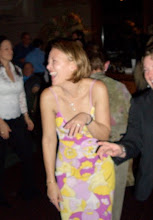I've read some reviews of Howard Jacobson's 2010 Man Booker Prize-winning novel The Finkler Question, and am rather surprised by most of the descriptions. Perhaps I missed something core to the book, but I would call it neither a "wonderful comic creation" nor a "riotous morass of jokes." It is a book about Jewish identity, with a protagonist who is not particularly endearing. For that reason, it recalls a bit of Philip Roth or John Updike, though it's neither as good as Roth at his best, nor as boring as Updike.
Set in London, The Finkler Question focuses on Julian Treslove (the rare non-Jew in the book) and his two friends Sam Finkler and Libor Sevcik. Treslove and Finkler were childhood friends who remained in touch as they grew older, and their mutual disrespect was, in many ways, what kept them close. Libor, an old Czech who had a second career as a Hollywood gossip journalist, was their former teacher. Now a widower who dearly misses his beloved wife Malkie, Libor hosts frequent gatherings of the trio, where they drink wine and reminisce about loves lost.
Treslove is an ex-radio producer who left an undistinguished career at the BBC to become a celebrity impersonator. Finkler, by contrast, is a popular television personality, a sort of self-help guru whose massive ego and self-aggrandizement have only served to increase his fan base. Finkler has always represented all things Jewish to Treslove; hence, the titular "Finkler Question" is really a "Jewish Question," which Treslove hashes time and again in his own mind. He's not Jewish, but obsessed with Jews (though not necessarily with Judaism). When Treslove finds himself the victim of a supposed anti-Semitic attack, this obsession triggers a reinventing of himself as the perfect Jew. He somehow believes it was Finkler's fault, but gets past (or, perhaps more accurately, dwells on) the attack by emulating what he perceives as Finkler's Jewish essence.
Reviewers have found this book to be hilarious; I found it rather dull. Critics praised Jacobson's prose and writing style; I found them to be ordinary. Perhaps this book just wasn't for me.
Next up: A Handful of Dust by master satirist Evelyn Waugh.
Tuesday, April 19, 2011
The Finker Question
Labels:
literature
Subscribe to:
Post Comments (Atom)


No comments:
Post a Comment